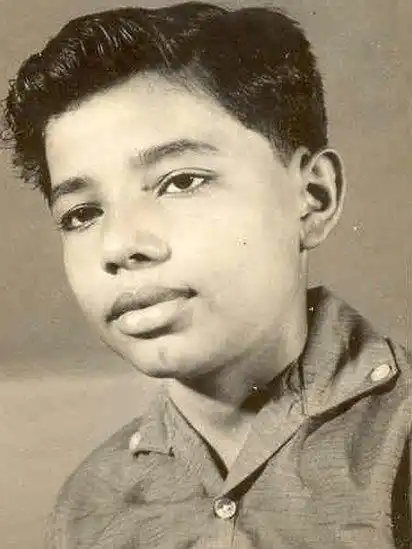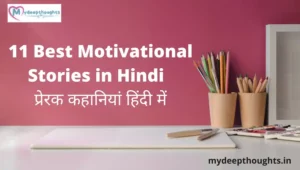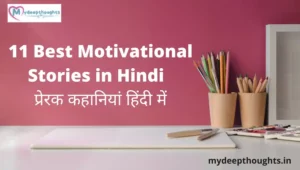#NarendraModiSuccessStory #PrimeMinisterModi
“Life is actually a series of choices. Everyone’s future and destiny are only in their own hands. As long as they are willing to work hard and pay, no matter how humble their life is, they can still achieve success.”
Narendra Modi Success Story
On May 16, 2014, the Indian state of Gujarat became a sea of jubilation, because Narendra Modi, the son of a poor family who came out of here, won the general election in 2014 and become the prime minister of India.
Winning the election was no surprise to Modi, which comes from the political popularity and personal charisma he has built over decades. The result seems to be a matter of course, but Modi’s struggle is not easy.
Gujarat is a large state in India with a land area of 196,000 square kilometers and a population of 63 million. Because it is close to the sea and is famous for its commercial development, Mahatma Gandhi was born here.
Narendra Modi’s Childhood
(Narendra Modi Success Story)
On September 17, 1950, Modi was born in a dilapidated town called Wardnagar. Narendra Modi’s mother’s name is Heeraben Modi and his father’s name is Damodardas Mulchand Modi At that time, there was no electricity in the town. When Modi fell to the ground, he was squeezed into a room with his parents and two brothers lighting kerosene lamps. In the house, two years later, another sister was added, followed by two more brothers.

In this way, a family of 8 relied on his father’s tea business at the railway station to make ends meet, and Modi helped his father take care of the tea business very early. But compared with most of the day laborers and sharecroppers in the town, Modi’s childhood living conditions were already quite favorable.
Although the Ganchi caste of the Modi family belongs to the middle and lower caste Vaishyas, in fact, the Modi family, as the Ganchi people, should belong to the ordinary working class, and can even become the lower middle class. But Modi was not satisfied with this kind of life when he was young, and he was not willing to be a tea worker all his life like his father, but there is no inspirational story about him wanting to cross the class and break through the racial imprisonment. Even if it can help his election in the political debate, he did not use his background to make a big fuss.
Modi’s Growing Environment
(Narendra Modi Success Story)
There is a Muslim community near Wardnagar, the town where Modi was born, so most of Modi’s childhood playmates are Muslims, and Modi is often happy to celebrate Hindu festivals with his Muslim friends. Of course, there is nothing wrong with children playing together, but their parents find it strange.
Modi studied hard in school but was very stubborn. His refusal of the monitor to mark his homework was often ridiculed at the time, but he insisted that only teachers were qualified to mark his homework.
According to Modi himself, he used to question his teachers’ teaching methods, sometimes saying, “Sir, why do you do that? You can do it too, it’s simple, you can do it, why don’t you do it.” Modi also likes to read books in the library, so he often thinks for himself, even when doing housework and playing games, he thinks about how to do it differently and how to do it more efficiently. Modi is a sturdy, athletic boy who liked to swim in the Shrimist Lake near his home as a child, even though it was known that there were many crocodiles lurking in that lake. These childhood stories have drawn some of the outlines of the leader—intelligent, energetic, opinionated, opinionated, socially competent, physically fit, and confident.
The place where Modi grew up belongs to Gujarat, which has one-third of the total length of the country’s coastline, so there have been many merchants and entrepreneurs in history. The nature of maritime trade has inspired and cultivated the business spirit of the local people, making Gujarat People love adventure and exploration in their bones, and they have done business all over the world. Anything that happens in Gujarat’s towns and cities affects its villages faster than anywhere else in India, and this is due to the fact that booming commerce breeds their immediate and extraordinary development of communications. With more roads, the population is more mobile, which makes the culture of Gujarat more individualistic and commercial. So how much influence do these cultures, traditions, and emotions have on Modi?
Modi’s Wandering History
(Narendra Modi Success Story)
As a teenager, Modi needed more than most children, and he was self-conscious from an early age. Contrary to other children who love candy and gourmet food, he began to give up some food when he was young, such as salt, pepper, oil, and even his favorite rough brown sugar. His actions made the family around him feel puzzled. Maybe in his heart, he just wants to be different, to explore and understand this different feeling by removing the things in life that others feel accustomed to. It sounds very Zen, like a six pure ascetic monk.
Modi joined the Rashtriya Swayamsevak Sangh (RSS) at the age of 6 through an acquaintance to work for MP Rasnik Bohar Dave. But even in the work of distributing items and serving tea and water, 6-year-old Modi still gained a sense of participation from it. When he was 8 years old, after helping his father finish the work of the tea stall at night, Modi went to participate in the youth rally of the Rashtriya Swayamsevak Sangh (RSS). It is difficult for normal people to imagine that such an organization would have such a strong attraction to an 8-year-old boy. . Perhaps it was the well-trained, full of thoughts and debates at the assembly that went against the school rote that inspired Modi at the time to persevere. It was then that he met his mentor, Lakshmanrao Inamdar, popularly known as Vakil Saheb, who had a profound influence on Modi’s political views and views on human potential.

At the age of 13, Modi was promoted to junior high school, but instead of choosing a local middle school, he wanted to study at the junior military academy, but the school was far away. Modi had to live in the school dormitory, but his father could not afford his accommodation fee and refused. Modi’s request. Perhaps trying to keep Modi with them, Modi’s parents told Modi at this time that he was engaged to a girl in the town when he was 3 years old, and according to custom, the two families would meet when they came of age An iconic engagement ceremony was held on the occasion.
This is undoubtedly another blow to Modi, who cannot go to the military academy, but the orientation of his emotional balance is already obvious enough. He refuses to do what he doesn’t want to do, even if cultural customs or family pressure him All to no avail. The young and vigorous Modi may have been angry with his family. When he was restrained in all aspects, he resolutely chose to wander away from home, and his 15-year-old wife had only met him once.
At this time, Modi, who was supposed to go to college, terminated his studies. He threatened to visit the Himalayas and then go on a purposeless trip. Although he went against his parent’s wishes, he still expected to get their blessings. The parents finally decided, that if he wants to go, they must let him go. His mother placed a tilak on his forehead, marking the opening of the spiritual eye, and helped him make Kansa desserts, which represent auspiciousness.
Seeing this, you may feel a bit contradictory. Arranged marriage and ordering tilak are traditional cultural customs. Why does Modi not dislike the latter? This may be a trait that politicians all have. They selectively respect traditions, they will earnestly follow the traditions they recognize, and they are eager to be recognized by the authority of traditional culture.
In this way, 17-year-old Modi began his wandering adventure. He persevered and walked without stopping. Even if he was stationed in a special area, he always wandered between different local states and towns. , He never has a fixed residence, but he enjoys this ascetic wandering day very much, even if he often runs out of food and needs to go to other people’s homes to beg for food, this life lasted for two years.
Modi, who was about to turn 20, went home once. This time, he not only grew a beard but also had a tougher body. He became a real man. His family hardly knew him. Modi only met with him. After less than 24 hours with the family, he re-started his “path of mission“. I came back this time as if I wanted to prove to my family that I can’t go back to the past, I can only keep moving forward. After he left home again, he has been immersed in the colorful landscape of the motherland. It is precise because of these that the adult Modi has a great longing for India. He believes that the vast land and long-standing culture can bring India a bright future.
Modi’s Political Awakening
(Narendra Modi Success Story)
In 1970, after a tortuous and long wandering time, Modi finally decided to entrust his soul to a practical career, and thus he began to dedicate his career to politics. Modi, 19, decided to join the RSS. In 1977, Morarji Desai‘s BJP won the general election, breaking the rule of the Congress party that imprisoned the country at the time. When the Congress party came out again 10 years later, Modi had grown from a behind-the-scenes worker to a seasoned veteran. political manipulators. Eventually, Modi was given the official position of “propagandist” in the RSS. At the beginning of 1972, Modi’s mentor, His Excellency Wakil, immediately began to intervene in the arrangement, and Modi was finally officially incorporated under the wings of the RSS. At this time, although Modi was only serving tea and water in the RSS, under the guidance of His Excellency Vakiel, Modi studied a full set of off-campus courses at Delhi University. Because of Modi’s ethos of doing one thing at its best, organizations are entrusting him with more and more work.
Joined BJP Party
(Narendra Modi Success Story)
PM Modi joined the BJP in 1981 and was later appointed as the BJP Gujarat Secretary General. This can be said to be the beginning of his official entry into the mainstream political circle.
In 2001, Modi became the chief minister of Gujarat, and his leadership became more and more prominent. However, to become the prime minister of the country, a higher standard is required.

And these, for Modi, do not seem to be tested, because he is a workaholic himself, and he is more ascetic on weekdays. In this regard, a minister who worked with Modi also said:
“Modi is a diligent and tactical politician. He spends the rest of the day strategizing and studying the political power game, except when he sleeps.“
In the end, he won this “game”.
In May 2014, Modi was elected as the new Prime Minister of India with an absolute advantage in the general election.
After he became the prime minister, he still lived an ordinary life, with neither luxury cars nor mansions, nor private yachts and planes. He still likes to tell about his poor days and all kinds of things about setting up a stall to sell tea. He still likes to go to the fields, experience life, and understand people’s feelings.

However, although he has no desires or desires for his own life, he still has great ambitions in politics.
Under his administration, a series of reform measures were introduced. Under his leadership, India’s economy has developed rapidly.
Perhaps, if there is no persistence and hard work at the beginning, Modi today still lives in that remote and backward countryside, living a humble and mediocre life all his life.
It is said that success has never been achieved overnight. For Modi, the same is true. The same is true for the millions of you and me.
Everyone who has a dream is amazing.
Modi, with his legendary life, proves to the world that no matter how humble the starting point is, as long as he works hard and is good enough, he can always achieve his dreams and realize his life value.
A low starting point does not mean that the ending point is also low. As long as you work hard and lose at the starting point, you can also win at the end.
So, if there is no light on the road of life, light one for yourself!
so this was the Narendra Modi Success Story, please share your views with us in comment section.
Read Also “10 Iconic Persons Success Stories For Motivation“





